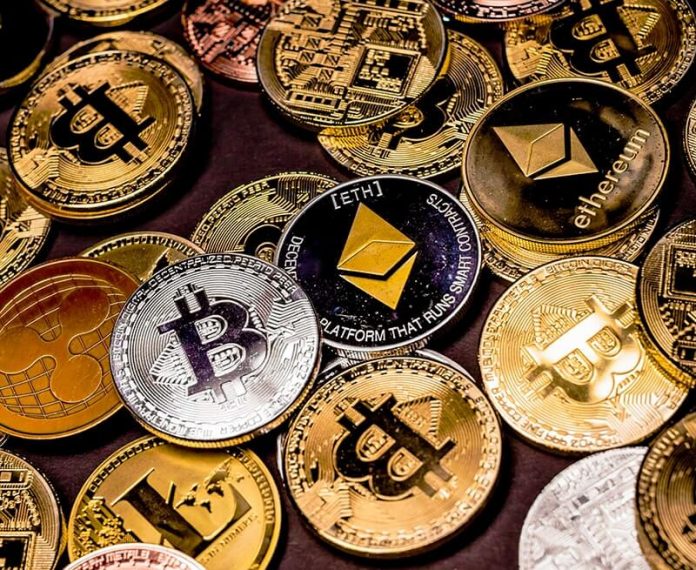The cryptocurrency market might be the hottest thing in the world right now. A lot of people are making a profit on crypto coins and tokens alike. However, as a digital currency, cryptocurrency comes with certain risks. That’s why protecting their crypto assets should be every investor’s primary concern.
What Is Cryptocurrency?
Cryptocurrency is a kind of virtual currency protected by cryptography. Transactions with it are visible to the public but can’t be manipulated or falsified without knowledge of a private key. It runs on decentralized networks, allowing peer-to-peer transactions and eliminating the need for banks as intermediaries. It also uses blockchain technology, a shared public ledger, that provides transparency and security with records stored in blocks.
Because everything’s digital in cryptocurrency, it’s advisable for investors to add it to their estate plan and find an attorney that understands crypto. Such steps will help ensure that an investor’s beneficiaries will be able to access their crypto assets should anything unfortunate happen.
Ways To Ensure The Security Of Your Crypto Assets
While it’s easy to lock away valuable physical objects for safekeeping, doing so with virtual objects may be slightly more complicated. Here’s how you can protect your crypto assets:
-
Use A Cold Wallet
The main advantage of using a cold wallet is it prevents your crypto assets from potential online attacks. There are two types of cold wallets: hard wallets and paper wallets.
-
Hard Wallet
A cryptocurrency hard wallet is a physical device (like a flash drive) connected to your computer. It holds one or more encryption keys to help you securely store some of your digital assets.
The primary feature of a hard wallet is offline storage for your private key. The private key is a long combination of letters and numbers that acts as a password to your cryptocurrency hard wallet.
When you send or receive cryptocurrencies, the transactions are signed with this private key and then verified against your public address by another party on the blockchain. This authentication process is called signature verification. If someone were to steal your hard wallet, they would only be able to spend the funds you have in it if they’re also in possession of your private key.
Using a hard wallet ensures that your crypto assets are protected from cyber hackers because its primary function is to keep your private keys away from the internet.
-
Paper Wallet
A paper wallet is a type of cold cryptocurrency wallet that allows crypto investors to have a printed copy of their private keys and codes. The crypto holder may use the printed copy in every transaction they make.
Paper wallets are also created with a key generator program. Private keys are then generated on the paper wallet, to be printed out in the form of QR codes or texts rendered as image files. Anyone can make these keys with a computer and an internet connection.
Also, the private key for each crypto address is encoded to generate a unique address every time it’s used. This means that no matter how many transactions are conducted from a paper wallet, the private key won’t be revealed and can only be accessed on that particular paper.
-
Put Your Crypto In A Trust
Like any other investment, cryptocurrency assets can be put in a trust. If you have a significant amount of crypto, you don’t want everything to be buried and undiscovered if something happens to you. Thus, putting your crypto assets in a trust ensures that they get documented so your beneficiaries can find them.
Also, putting your crypto assets in an asset protection trust may help you avoid future lawsuits and potential creditors depending on the type of trust you prefer. Offshore asset protection trusts and domestic asset protection trusts are examples of trusts you may use.
An offshore asset protection trust is a trust arrangement that’s not established or administered in your country. Instead, most offshore asset protection trusts are set up by a trustee over which your country doesn’t have jurisdiction. Trustees oversee an individual’s assets, such as yours, from outside the country.
On the other hand, a domestic asset protection trust also provides legal separation between your crypto assets and other assets you may have, such as real estate or a business. It’s established by a trustee under the same jurisdiction as you. With this type of trust arrangement, your crypto assets are held by an independent trustee and not in your name so creditors can’t claim them if a judgment is made against you.
-
Do Not Keep Your Cryptocurrencies In Exchanges
Some individuals may find it convenient to keep their crypto assets in exchanges. After all, this practice gives them the ability to exchange them for fiat money or other types of crypto anytime they need them. However, it would be best to understand that there’s a lot of risk in keeping crypto assets in exchanges. It’s because cryptocurrency history shows that many exchanges, small or big, have been hacked and plundered to the point that recovery is almost impossible.
-
Spread Your Crypto Assets
Using only one storage option for your cryptocurrency assets can lead you to lose everything if it gets compromised. Thus, it’s a must to spread your cryptocurrency assets across different wallets.
-
Keep Your Private Keys Secure
 This doesn’t mean you only need to protect your private keys from hackers—you have to secure your possession over them, too. It’s because private keys are an essential part of accessing crypto wallets. If you lose access to one, you can no longer recover whatever amount you have in the particular wallet it’s used for. You should also know that the third-party vendor from which you get your digital or cold wallets won’t be responsible for lost private keys.
This doesn’t mean you only need to protect your private keys from hackers—you have to secure your possession over them, too. It’s because private keys are an essential part of accessing crypto wallets. If you lose access to one, you can no longer recover whatever amount you have in the particular wallet it’s used for. You should also know that the third-party vendor from which you get your digital or cold wallets won’t be responsible for lost private keys.
Therefore, you can either write your private keys on paper or create multiple backup files to ensure you have a copy whatever happens. Remember, though, that creating backup files can be risky as it increases the chances of exposure to others. To address that issue, ensure that the copies of your keys and codes are stored in a safe place that only you or authorized persons can get to.
Takeaway
There are many ways to protect your cryptocurrency assets. Consider pulling your cryptocurrency out of exchanges if day trading isn’t your goal, and put it into a hard or paper wallet to protect it from hacking attempts. Remember that spreading your cryptocurrencies across different wallets is also a good way to protect them—if one wallet were hacked, all the other wallets would still have your assets intact. Lastly, if something happens to you, make sure your beneficiaries can access your crypto funds by putting them in a trust account.
With these measures taken care of, you’ll be well positioned to reap the benefits of your crypto assets.
Disclaimer: This article contains sponsored marketing content. It is intended for promotional purposes and should not be considered as an endorsement or recommendation by our website. Readers are encouraged to conduct their own research and exercise their own judgment before making any decisions based on the information provided in this article.


























![“Does Everyone Hear Me OK?”: How to Lead Virtual Teams Effectively iStock-1438575049 (1) [Converted]](https://www.europeanbusinessreview.com/wp-content/uploads/2024/11/iStock-1438575049-1-Converted-100x70.jpg)




